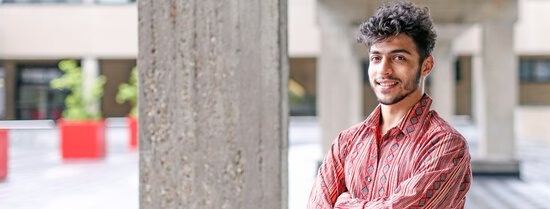The master programme is structured around three themes. These three themes are the main thrust of the MA, using the existing expertise of ESPhil's academic staff, while at the same time, keeping the MA relatively open for a broad range of students.
- Philosophy and Technology
- Philosophy and Social Change
- Philosophy and History
Practical information
Each of the themes will consist of two core courses which are well-aligned and have two additional electives which can go into depth on a more specific or adjacent topic. However, from the student perspective, as they only take 60EC of the total on offer, the program will look slightly different. Students will take 15 EC per block, which means that for the first two blocks, they will have to choose two out of three (core) courses. These courses are pre-aligned so that coherent themes emerge (see below) but also link through the different themes so that students can tailor their own program depending on their interest and possible expertise.
Students only have to take two electives in block 3 (7.5 EC) as From Theory to Practice (5 EC) and the Thesis tutorials (2.5 EC) will technically be hosted in block 3 as well (even though From Theory to Practice will start earlier, the technical designation of the EC, as well as the rounding off of the course with a final product, will take place there).
MA students will start the From Theory to Practice trajectory in which we will offer several ways in which the student can engage with practices related to philosophy such as public policy, (transformative) education, and academic research. These sections will consist of multiple specialized meetings in smaller groups as the students work towards domain-specific assignments – such a policy proposal or a contribution to the public sphere.
Furthermore, students will start their thesis preparation in block 3, as they work towards the final block which is dedicated to thesis writing and meetings with the supervisor.
To facilitate part-time students, the classes of two of the three themes are programmed on Mondays. This pertains to blocks 1-3.
Learning objectives
The MA Philosophy Now aims to prepare you for careers in- and outside academia. It provides you with a thorough grounding in subjects of interest within the four clusters and with analytical and research skills required for doctoral study or a wide range of careers.
Mode of education
Education in the Master in Philosophy at Erasmus University Rotterdam is organised on a small-scale basis. Besides lectures you will have group tutorials and non-academic workshops. There is ample room for debate and discussion with fellow students, but we also expect you to work individually, for instance by writing essays. During the process of writing your master thesis you will be closely supervised.
Themes
Theme 1: Philosophy and Technology: Technics in the Cosmos
Digital technologies have become an indispensable part of our society. They open up new possibilities and applications, from entertainment to healthcare. But they also raise political, ecological, and philosophical questions. Technologies are not neutral artifacts but are co-constitutive of the world — in which human and non-human live and act. To this extent, technology could be considered to define the human condition. This requires a reinterpretation of the historical and contemporary role of technology in philosophy. To intervene in the ecological, political, and technological crises today we must understand the phenomenon of technology on its own terms, forming a progressive understanding of (digital) technologies and how they can contribute to societal advancements.
Theme 2: Philosophy and Social Change: The Everyday Politics of Social Change
Surely the moment is at hand for some revolutionary change! Or is it? Our assumptions concerning the grandeur of social change often obscure the everyday politics that shape our reality. Concepts like normality, resilience, activism, representation, solidarity, and collectivity will be central to understanding our predicament. We argue that the supposedly mundane aspects of everyday life have a much more profound impact on society — both in terms of how it is constituted now, and what is possible.
Theme 3: Philosophy and History: Philosophy in History, from Antiquity to Enlightenment
We will explore new ways of understanding the history of philosophy in order to develop enriched perspectives for dealing with current philosophical issues. Rather than follow chronological developments, we shine a light on specific moments in history in which concepts get elaborated, reflecting the effects of a historical crisis or turning point. Bringing in lesser-known thinkers and traditions, women philosophers, and non-Western traditions, we examine past philosophers as contributing to a laboratory of thought that never ceased to question and challenge the ideas, habits and ideologies that shape human life.
Curriculum - Master Philosophy Now (part-time)
Click on the course links below to view the course syllabus. (The overview may be subject to revision from academic year 2024-2025 and on.)
2025-2026
"Part-time students either combine cluster 1 “Representation” and cluster 4 “The Politics of Inequality” or cluster 2 “Environment, Life and Technology” and cluster 3 “Subjectivity and Response-Ability”, or cluster 2 “Environment, Life and Technology” and the “Sustainability Transitions” cluster. "
Every student will follow the introductory courses underneath.
